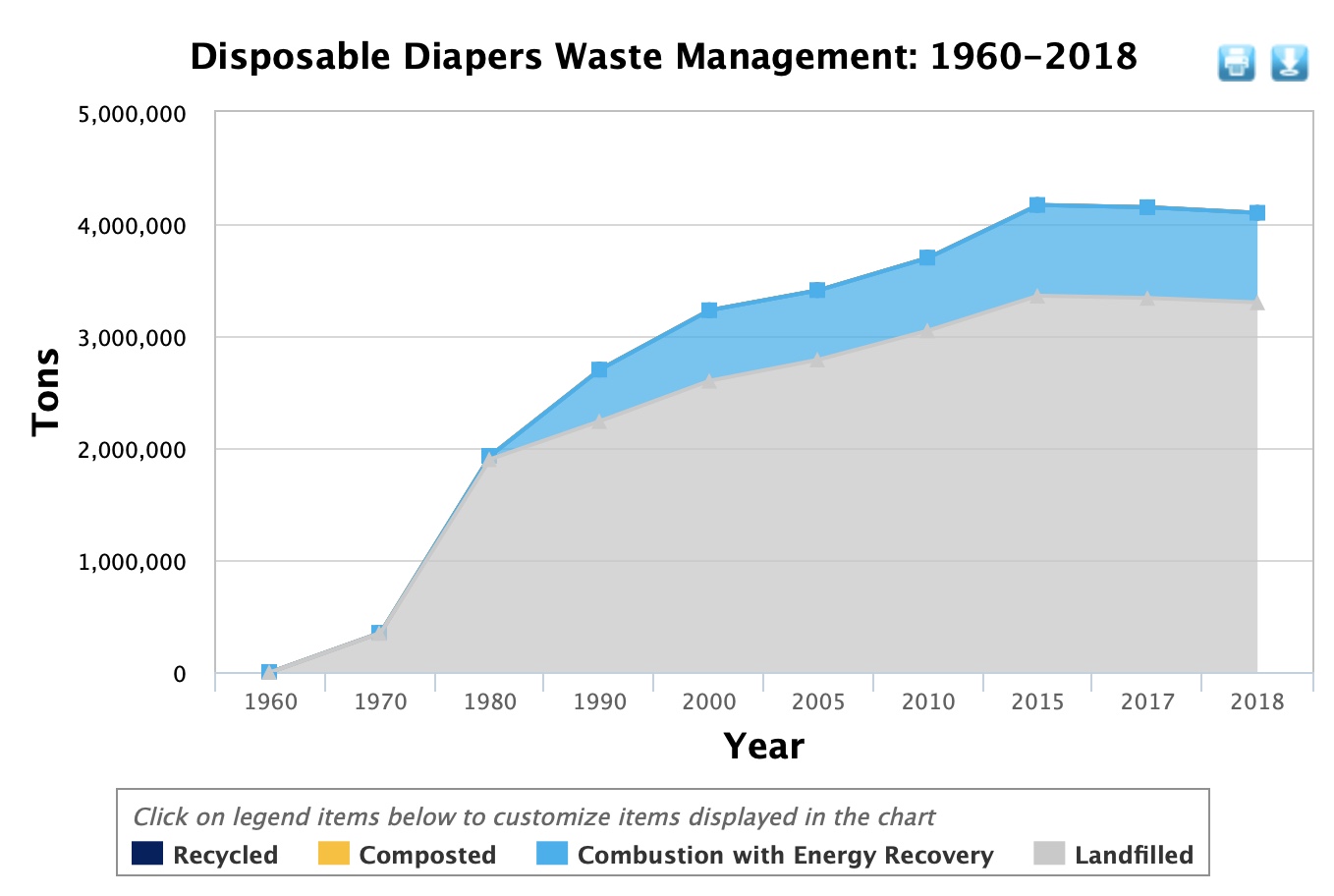Building out more and more renewables doesn’t mean anything if emissions aren’t falling - and they aren’t. Since 2021, nearly 4 full years, the world has closed less than 1% of active coal power plants.
The buildout of renewables has arrived hand-in-hand with an increase in total energy usage. The energy mix has improved greatly in favor of renewables, tons of CO2 per KWh is way down, unfortunately we just use more KWh so total emissions are still rising.
Everything in the meme is a leading indicator for positive change, which is wonderful, but the actual change needs to materialize on a rather short timetable. Stories about happy first derivatives don’t count for much.
From your link it, for me, it seems like emissions are platooning, similar to a technological S curve. Even if China and India are growing exponentially, reduction in other countries are enough to slow down the process significantly (specially if you zoom in in the last 10 years).
It’s very hard to predict change, but I suspect the deprecation of solutions that emit lots of emissions is about to skyrocket.
We might already have reached peak carbon emissions. There’s also the thing where renewables are so much cheaper that it’s in most countries best self interest to build renewables.
The thing the world is doing now is more energy but the cheapest one is electricity so more electricity. The duck curve is an energy storage opportunity that’s being taken advantage of more and more. Things are heading in the right direction but it’s not fast enough.
The next emissions on the chopping block are household heating and cement and low-med industrial heat with more advanced heat pumps or heat pumps set up in series.
I’ve decided to become cautiously optimistic recently the more I learn about how science is advancing the renewables despite governments sometimes being in the way.
Since 2021, nearly 4 full years, the world has closed less than 1% of active coal power plants.
Closing will come later, when alternatives are widely available. What renewable energy does currently - at least here - is forcing those plants temporarily out of the market, especially during summer months and windy weather. The plants will exist and stay ready in case of need for well over a decade, maybe even two - but they will start up ever more rarely.
Technically, the deal is: we don’t have seasonal energy storage. Short term storage is being built - enough to stabilize the grid for a cold windless hour, then a day, then a week… that’s about as far as one can go with batteries and pumped hydro.
To really get the goods one has to add seasonal storage or on-demand nuclear generation. The bad news is that technologies for seasonal storage aren’t fully mature yet, while nuclear is expensive and slow to build. There’s electrolysis and methanation, there’s iron reduction, there are flow batteries of various sorts, there’s seasonal thermal storage already (a quarter step in the right direction)…
…but getting the mixture right takes time. Instead of looking at the number of closed plants, one should look at the sum of emissions. To remain hopeful, the sum should stop growing very soon.
Instead of looking at the number of closed plants, one should look at the sum of emissions
That was in the link I posted. Emissions are Currently at record highs.
Slowing growth isn’t enough; we need significant, sustained, reductions in the very near future, and negative emissions and sequestering carbon in the medium term.
None of that is happening at a scale that would inspire optimism.
Technically, the deal is: we don’t have seasonal energy storage.
Thankfully, we are actually solving this problem by just making solar panels comically cheap. We are going to solve seasonal swings in power demand by just spamming the ever-loving-hell out of solar panels. Solar is so vastly cheaper than nuclear that this is the better option.
If the panels are cheap enough, you can build enough of them to meet your needs even on a cloudy winter day. Then the rest of the year you have dirt-cheap energy. In turn, a lot of power-intensive industries can move to a seasonal model to take advantage of the nearly-free energy during the warmer months. We have a crop growing season, why not a steel smelting season, or an AI model training season?
That’s a pretty big gap to cover with spamming more panels. I would venture to guess: this approach would work up to latitude 45 or so.
https://www.engineeringtoolbox.com/surface-solar-radiation-d_1213.html
Where I live, in midwinter, the day is 6 hours long. Over here, wind turns more heads than solar. But yes, solar is riduculously quick to install.
The key is that, watt for watt, new solar right now costs about a quarter what new fission does. The cost difference has gotten that ridiculous. There are other options as well of course. We can use that superabundant power in the summer to split water and make lots of hydrogen, and use that for power in the winter. We can even use it to pull CO2 from the air, convert it to synthetic fuels like synthetic methane, and just run our old natural gas plants for power in the winter.
And we’re easily headed to a world where watt for watt, solar is 1/10th the cost of new fission. At that point, even at high latitudes, it makes more sense to use solar power even in winter. I mean sure, if you’re at such extreme latitudes that you have months of total darkness, then solar will have a problem there. Maybe small modular reactors make sense for those niche applications. But even then, those areas are probably better relying on synthetic fuels made from solar power plants at lower latitudes. Or even better, those higher latitudes also get very long days during the summer months, so they can make their own hydrogen during the summer and run their grids off tanks of that in the winter. Or, if nothing else, we can always just run some long power cables north-to-south.
I mean sure, if you’re at such extreme latitudes that you have months of total darkness, then solar will have a problem there. Maybe small modular reactors make sense for those niche applications.
Currently, solar still makes economic sense, but from April to October. Lots of it was built rather fast, now the adoption is slowing since the grid can’t accept it everywhere.
Consequently, summer is when oil shale miners rest and prepare for the next season.
Since the goal is to get rid of mining oil shale, big plans exist to install a lot of wind power. Sadly, this has gone embarrassingly slow, and it cannot cover winter consumption, and there is not enough storage.
As a result, some companies and building out storage, but only enough to last a few hours.
…and in the next country southwards, there is a huge gas reservoir that could accept methane, enough to last the whole winter, but nobody has a good enough handle on methanation to renewably produce a considerable quantity and store it there. :o
With regard to reactors, it seems likely that getting one would take 10 years and the local country here doesn’t even have legislation built out for nuclear power. They’re drafting it. Starting from zero is quite slow.
One technology that’s being developed that can help is high-voltage superconducting DC power, which can send power thousands of miles. So if it’s a sunless, windless day in the Northeast they can send power from the Midwest to stabilize the grid.
Also, I’m very bullish on Iron-Air batteries for long-term grid-level storage.
Didn’t Britian just close down it’s last coal plant? Also Colorado is switching away as well. I thought natural gas was replacing coal?
Real question: Most of things listed are consumer level changes. Isn’t the large majority of global warming being caused by industry emissions?
Large scale solar is also taking off.
Large scale solar farms have been a thing for decades. Large scale solar adoption is like wrestling with a hydra. The heads are Russia, China, and the middle east. Go nuclear, be the sun.
All that matters is cost in the energy transition. A certain subset of person likes fission because it’s always fun to be contrarian. But there’s a reason fission companies have gone bankrupt left and right, and that we’ve seen countless fission startups collapse over the last two decades. Nuclear proponents like to bitch about strawmen Greenpeace activists and people irrationally afraid of nuclear power. They like talking about these phantom barriers to nuclear, as if fear of nuclear power has anything to do with why fission is a dying technology.
Fission is dying because it’s just too damned expensive. Bitch all you want about the intermittency of solar; it’s cheaper to just spam solar panels and batteries than it is to create an equal amount of reliable power with fission.
Nuclear proponents will always state that fission can be done perfectly safe, and that’s true. But when you point out the cost, they then bitch about regulation making it expensive. Never do they connect the dots that it is precisely that heavy-handed regulation that ensures corporate profits don’t result in unsafe power plants.
Fission is an inherently dangerous technology. Yes, some modern plant designs are “intrinsically safe,” if they’re built right and maintained right and no greedy bastard corporation cuts corners somewhere to save a buck. In order to do nuclear safely, you have to regulate the ever-loving hell out of it and make sure every step of the process is checked and double checked, and that there is some neutral third party looking over everyone’s shoulders. Nuclear power, if done wrong, can go absolutely catastrophically wrong. It can render entire regions uninhabitable for generations. It can be done safely, but only if extremely heavily regulated and tightly controlled. And that is one thing that just inevitably makes fission power extremely expensive. There is no “move fast and break things” when you’re splitting atoms. Development is slow, expensive, and bureaucratic. And that is unfortunately just the way it has to be for this technology to be used safely in a for-profit capitalist society.
How’s it feel to be a fossil fuel stooge?
Quit huffing paint. The future is solar. Fission, like fossil fuels, is a dead-end technology.
What exactly does nuclear change about Russia, China and the middle east? That’s a massive non-sequitur
Besides, think of China what you will, they’ve been key in driving large scale cheap solar
Nuclear is the only energy that really solves our problems. Nothing to really be confused about there.
You’re taking solar for granted. You’re not asking the important questions. Like, what if they wont sell to us anymore, what’s the human cost of human life? Can you honestly openly hold solar as some separate high accomplishment against the genocides China and Russia are openly complicit it?
Like, what if they wont sell to us anymore, what’s the human cost of human life?
Come on, you’re smarter than that. Are you seriously asking, “what happens if China cuts off our supply of solar panels?” Are you a troll, or just dense?
Think about it. Just think about that for one god-damned second. Solar panels last for DECADES. And even after decades they still retain 75-80% of their original capacity. We move everything to solar, and then China cuts us off from new panels. So then…oh no…we can’t get any replacement panels. Clearly the whole nation will collapse!
Of course not. Unless you’re Mr. Burns, you’re not blockading the fucking Sun. This isn’t oil, or natural gas, or uranium someone can blockade or embargo. If the US gets cut off from new Chinese solar panels, we have literally DECADES to ramp up our own production until things really become a problem.
The same can be said for nuclear. Potentially even more so. 3 countries produce almost all of the world’s uranium. What if they stop selling? You can build a domestic solar panel industry if you want, you can’t magic a uranium deposit under your feet. Nuclear is slow, expensive and a national security risk. Renewables are none of these things. Stop shilling for the energy companies that want to keep their monopolies.
Silliness. Your counterpoints are valid, but mostly restate my last comment with somehow even less sense. Buying solar panels from China isn’t more a national security risk than uranium from Australia? I don’t think you really have a well though out point here.
I’ll restate my own here for posterity and leave you to it. Solar from China Russia bad. Nuclear from literally anyone else good. Nuclear is safer, cheaper, and more efficient in every way at scale.
Remember, solar is untenable, poorly adopted, and is actively being pumped in price. This is as cheap as it will ever be all things equal. Nuclear has had none of those luxuries. If you think the price drop of a untenable solution is impressive, wait until you see one that really works.
Nuclear is consistently among the most expensive ways to generate power, and only afloat due to massive government subsidies, especially when it comes to waste storage. Whereas solar and wind are only beaten (in some metrics) by natural gas when it comes to power per dollar, getting even cheaper at scale.
https://en.m.wikipedia.org/wiki/Cost_of_electricity_by_source
Your original point was that renewables are being blocked by China, Russia and the Middle East. I disagree on China, but that’s not the point. How will nuclear, with all strings attached, succeed there, whereas solar and wind won’t? Silliness.
Indoor farming isn’t scalable. At least not with the models that are being done now. They work for niche crops, but not staple carb sources like potatoes and grains. They can be profitable, but aren’t a catch all solution.
The ocean cleaning projects also don’t scale. We should be focused on keeping the trash from getting into it first by switching to recyclable and biodegradable packaging and forcing the fishing industry to switch back to hemp nets.
I don’t think that scalable and profitable are goals of indoor farming. It’s done for self sustainability.
Idk about your first point but The Ocean Cleanup, has been doing great work creating plastic filters for the worlds most polluting river. I understand not creating the waste in the first place would be most efficient but this organization is doing a good job cleaning up the mess.
All true, but categorically the problem is growing much faster than the solution. It probably always will be unless it’s stopped from the source.
staple crops have too many subsidies to be a good source of comparison, and staple crops aren’t very healthy for people in general.
Staple crops aren’t just your cheap empty calories. Legumes, carrots, sweet potatoes, squash, soybeans, onions, and some very healthy grains are all staple crops. Even the humble potato is fine, though many preparations of it are unhealthy. Take this soup:
- Lentils
- Carrots
- Onions
- Celery
- Potatoes
- Beans
- Vegetable broth made from the odds and ends
- Herbs & spices
Subsidies keep the farms alive in the first place. It’s simply not profitable to grow anymore. We make so much it’s too cheap to sell. Therefore the volume required and the margins are so razor thin. It’s make a profit or be bough-out by a bigger company.
Regardless of the politics that modern staple crops are associated with, you still need calories. Why do you think rice was a second currency for a very long time in some parts of the world.
Also, the example of indoor farming that’s near me is absolutely running off of government money, at least for now. They got a grand to setup in an old warehouse in downtown, but also own some empty property in the neighborhood. This could be just them future proofing or it would be them looking to flip the property once the main site raises the property values.
And then there’s the MIT Food Computer, which promised a lot and delivered nothing. The smaller scale the production, the less efficient it is. If you want to feed the world’s population without a steep decline in that population, you’re going to need outdoor farming in addition to the indoor stuff.
By the power invested in me by, well, nobody whatsoever, can I just take a minute to say, let’s all cool down a little in the comments!
There’s a lot of arguing against:
- The idea that acknowledging the tragic reality of climate change makes you defeatist
- The idea that because we have had some great advantages in green tech we can sit back and let climate change fix itself
I don’t see anyone making those arguments here though! Just lots of people concerned about climate change with different skews of how positive/negative we should feel.
Personally, I swing between powerful optimism and waking in terror at 3:00am for the future we’re hurtling towards. I’m sure other people are the same, so let’s just be friendly to the fact that other people are in different vibes to us.
There are some people working together very well right now to dismantle the climate, so let’s all remember that when we’re talking with each other.
Peace and love!
kind of an ironic choice of template for the message
Disposable diaper use is going down, and a decreasing proportion is getting landfilled.

I worry that climate defeatism has become a religion, and it will be difficult to separate it from policy discussion going forward.
Things just shifted instantly from “nothing needs to be done” to “nothing can be done.”
The Climate Denier’s prayer:
The climate isn’t changing,
and even if it was,
It’s not humans that are causing it,
and even if we are,
It’s better for the economy if we ignore it,
and even if that’s not true,
There’s nothing we can do about it anyways.And even if we could, It would probably mean no more muscle car collection for me.
Almost as if the people in charge of oil and coal and such want us to be fighting about this type of shit…
climate defeatism has become a religion
Going outside to 90⁰ weather in October is a religion?
No. Climate defeatism is.
If the sum total of “Say no to climate defeatism” is “Don’t feel bad during the latest in a series of historic heat waves”, then you’re not arguing against defeatism. You’re arguing for denialism.
Don’t feel bad during the latest in a series of historic heat waves
Good thing nobody actually said that, then.
A few folks I know switched smoothly from “climate change is fake” to “maybe it’s real but there’s nothing we can do about it at this point. Might as well live it up.” Basically anything to avoid change at any level.
I think that’s the defeatism they’re talking about here, not people pointing out the issues.
A few folks I know switched
All of that is just cope, though. Speed running denialism to acceptance. The bottom line is that - individually - there’s nothing any one of us is going to do to stop Indonesia from building a new coal plant or end fracking in West Texas or stop whatever the fuck this is…

These are large scale socio-economic problems stemming from an industrial system that does not need to account for its waste byproducts. “Well, you should just believe that climate change is real but also believe its fixable” is the correct sentiment. But simple sentiment has no impact on policy.
I think that’s the defeatism they’re talking about here
I have spent my entire life hearing people in positions of authority talk about climate change and watching the institutions they lead ignore the impacts whenever a change in policy might detrimentally affect domestic economic growth rates.
That’s why my heart is filled with doomerism. Even when we know, and even when we (superficially) acknowledge we can change the policy, the folks at the controls… don’t do it.
I was on a road trip this weekend, and we had to clean the windshield 5 times. So it looks like the bugs are making a comeback thanks to restrictions on Monsanto products.
Why perchance has the interest in a self-sustaining life skyrocketed you think? Could it be because people can barely afford food anymore?
Not just that, it’s a combination of factors. Sustainable thinking, independence, a connection to the world and self and much more.
my mind rapidly shifts from defeatism to optimism practically every week
Nuclear is the way to go. If we can’t manage that we never had a shot as an intelligent race to begin with.
This is what I’m banking on, things get bad but that would motivate us more and it would become easier and easier to address.
Having said that, I think degrowth is the correct way; the above is risky but better than doom and gloom.
To be fair, as much as we should highlight the good news.
I wouldnt say It is defeatism to say there is a hell of a lot more bad stuff going, we should highlight the good stuff while recognizing we have a ways to go.Eat right and do a little exercise every day and you don’t have to be fat anymore.
I’m not fat, I’m just a natural carbon capture machine
Only if we sequester your corpse in a mine shaft
thank you.
One day I will die, and sooner than I wish. Maybe some effects of climate change will do me in. At least nobody can say I haven’t done what I could to stop it. It’s what I do for a living.
It certainly hasn’t defeated MY adoption expectations, and don’t even talk to me about stock share prices for anything involving solar.
I hate stocks, but I hope yours go to the moon!
me too…












